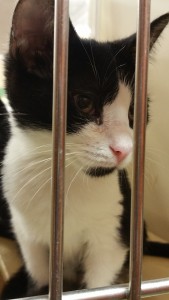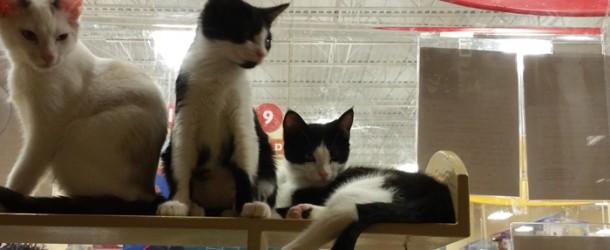 In 2013 there were 4,509 dogs and 18,981 cats that were euthanized in the state of New Jersey. Impounded there were 85,077 both cats and dogs, from that number only 38,525 were adopted. You can find these statistics on the NJ department of animal health section, also please check out your own state’s numbers. Since 2013 these numbers have grown. These numbers continue to grow because most of the stray animals are not neutered or spayed. We all know that having our companions spayed or neutered is best for their optimal health. However stray animals don’t have anyone looking out for them, not only are they not able to get to their optimal health but they also reproduce constantly. Shelters, fosters, and rescue groups can only hold so many animals at a time.
In 2013 there were 4,509 dogs and 18,981 cats that were euthanized in the state of New Jersey. Impounded there were 85,077 both cats and dogs, from that number only 38,525 were adopted. You can find these statistics on the NJ department of animal health section, also please check out your own state’s numbers. Since 2013 these numbers have grown. These numbers continue to grow because most of the stray animals are not neutered or spayed. We all know that having our companions spayed or neutered is best for their optimal health. However stray animals don’t have anyone looking out for them, not only are they not able to get to their optimal health but they also reproduce constantly. Shelters, fosters, and rescue groups can only hold so many animals at a time.
Thankfully with a few programs and the help of many rescue organizations they have found a way to decrease the number of animals that are impounded. A few of the rescue groups in the NY and NJ area have started a Trap, Snip, and Release program. The goal of the program is to reduce the amount of dogs and cats that are born into the stray world. Other organizations may provide similar services under a different name. An example is the ASPCA’s Mobile Spay/ Neuter clinic. They will spay/ neuter any healthy cat or dog that is brought over to them so long as they meet the criteria required for surgery. If you want to check out if there is a mobile clinic near you, you can check on this map provided by the ASPCA.
The “Trap, Snip, Release” program works in two ways, firstly word of mouth and secondly by patrolling the area. Because most rescue groups are run by volunteers word of mouth is often a huge asset to them. They depend on the public to let them know where large groups of cats/ dogs are located. Once they find the animals they trap them ( in a way that will not harm the animal), then spay/neuter them and release them back into the community. Now I know what your thinking, why don’t they just house them after and place them up for adoption? The reason is there is just simply no space. However now that they are spayed/ neutered they will not be able to reproduce constantly, which helps the over all population of stray animals.
How does this program benefit you or your animal companion? Well, because feral cats, stray cats, and stray dogs often carry some serious disease, having less of them on the street protects your family pet from catching a disease as well. Stray animals often make homes of our backyards, parks, and bushes, the world is their bathroom. We may unknowingly come into contact with a contaminated area. Another way it may help is by changing the behavior and maybe even the chemistry of the animal. Stray animals are often much more aggressive, sexually hungry, and territorial. Studies have shown that spaying / neutering them changes their behavior. Their sexual desire may decrease, aggression levels may become lower, and their urine may lose its strong repugnant smell.
A decrease in the number of stray animals, a better health outlook for the stray community and a decrease in the probability of getting infected ourselves are all great reasons to donate or take part in these programs. Some programs may have a higher fee for this service than others, but you can check your local rescue group or shelter for their prices. You want to protect the health of your family pet at home but don’t forget that the health of the stray community as well may benefit your pet too. Don’t forget to please check the ASPCA map to find local spay/ neuter clinics near you.

Actually, the ASPCA requires that you take a TNR (which is called Trap Neuter Return – not Release, to ensure those hearing about it understand the cats are returned to their current location and not relocated anywhere) workshop to bring in community cats and those appointments are for the two stationary clinics, not the mobile clinics. The mobile clinics currently only handle owned animals on a first come first serve basis:
http://www.aspcapro.org/ssnc
If you have a rescue agreement with the ASPCA (after taking the TNR workshop), the services offered at the above link are valid and you can make appointments for the cats you have.